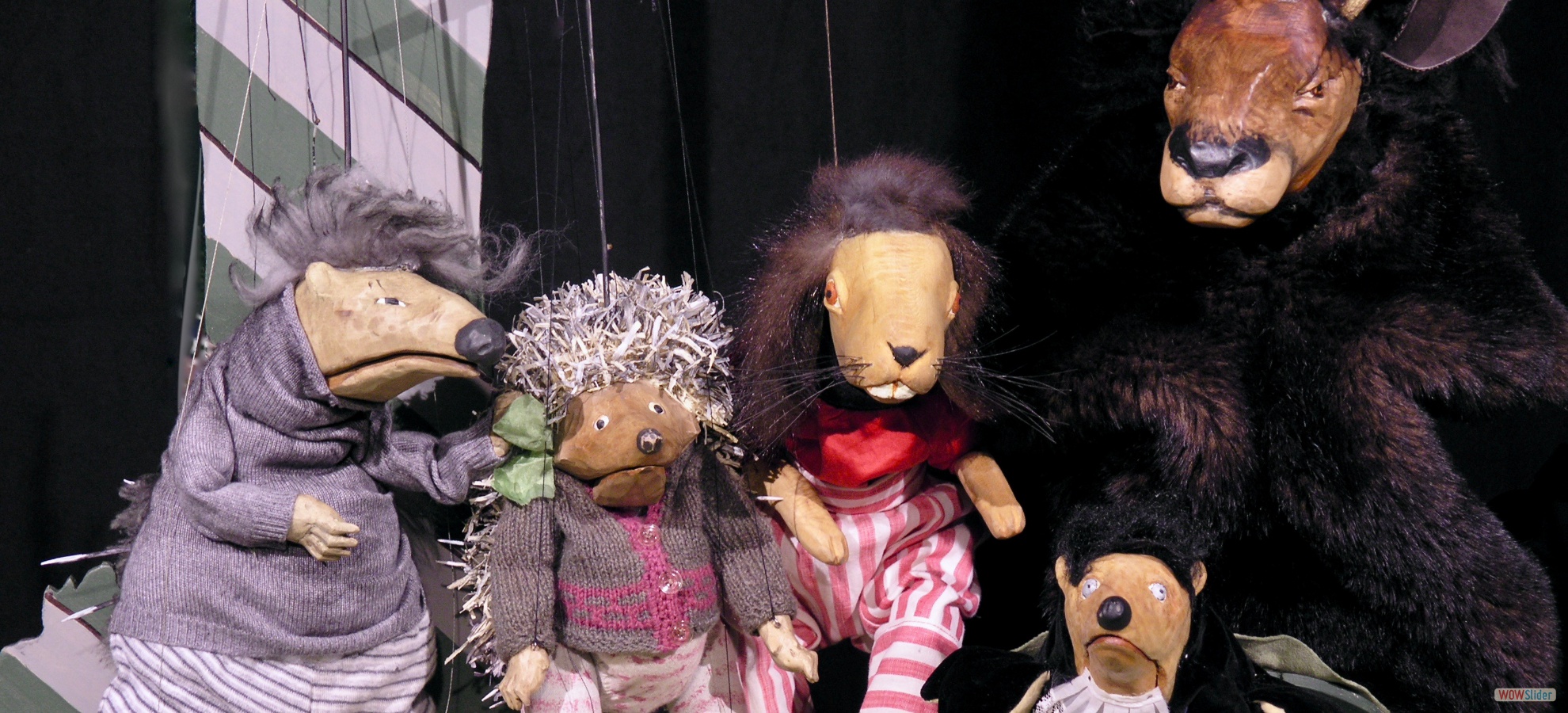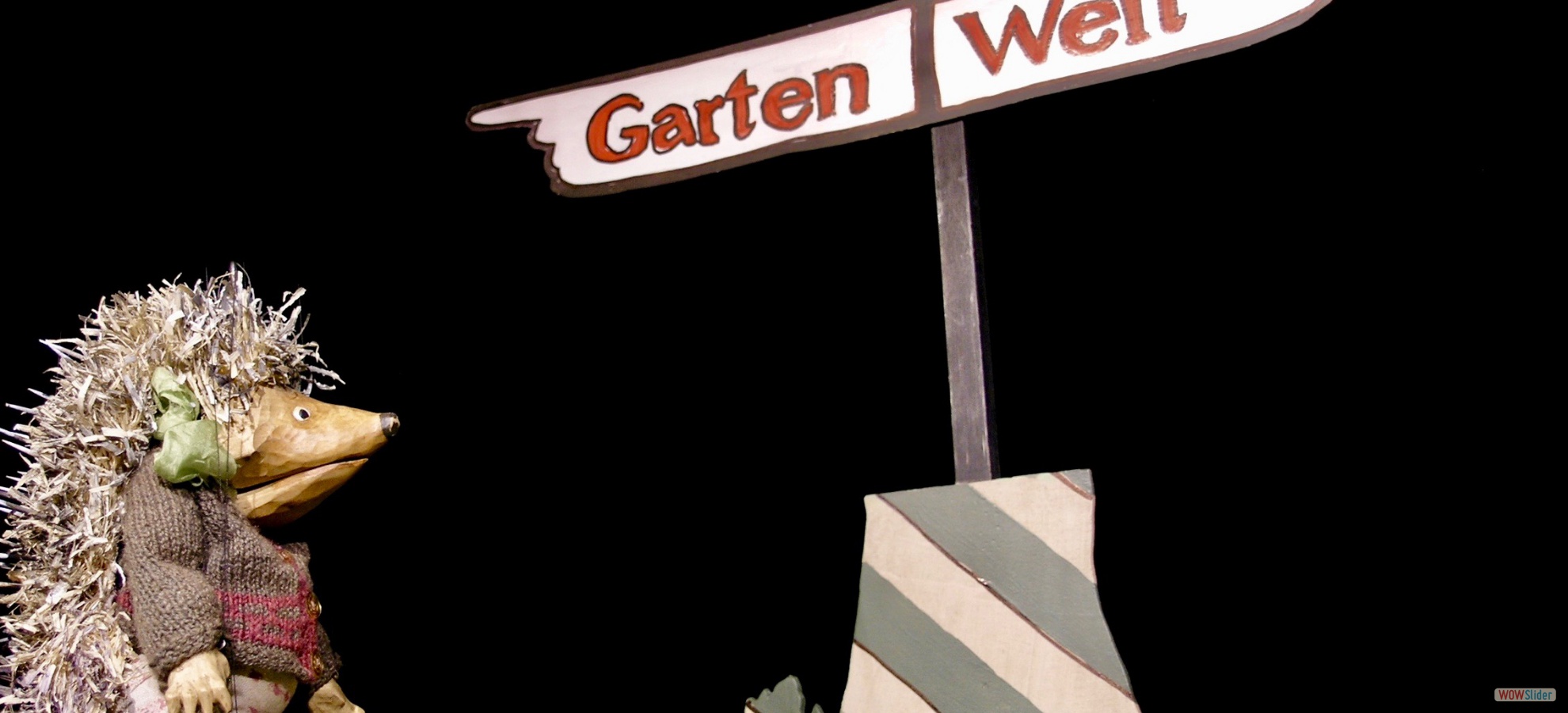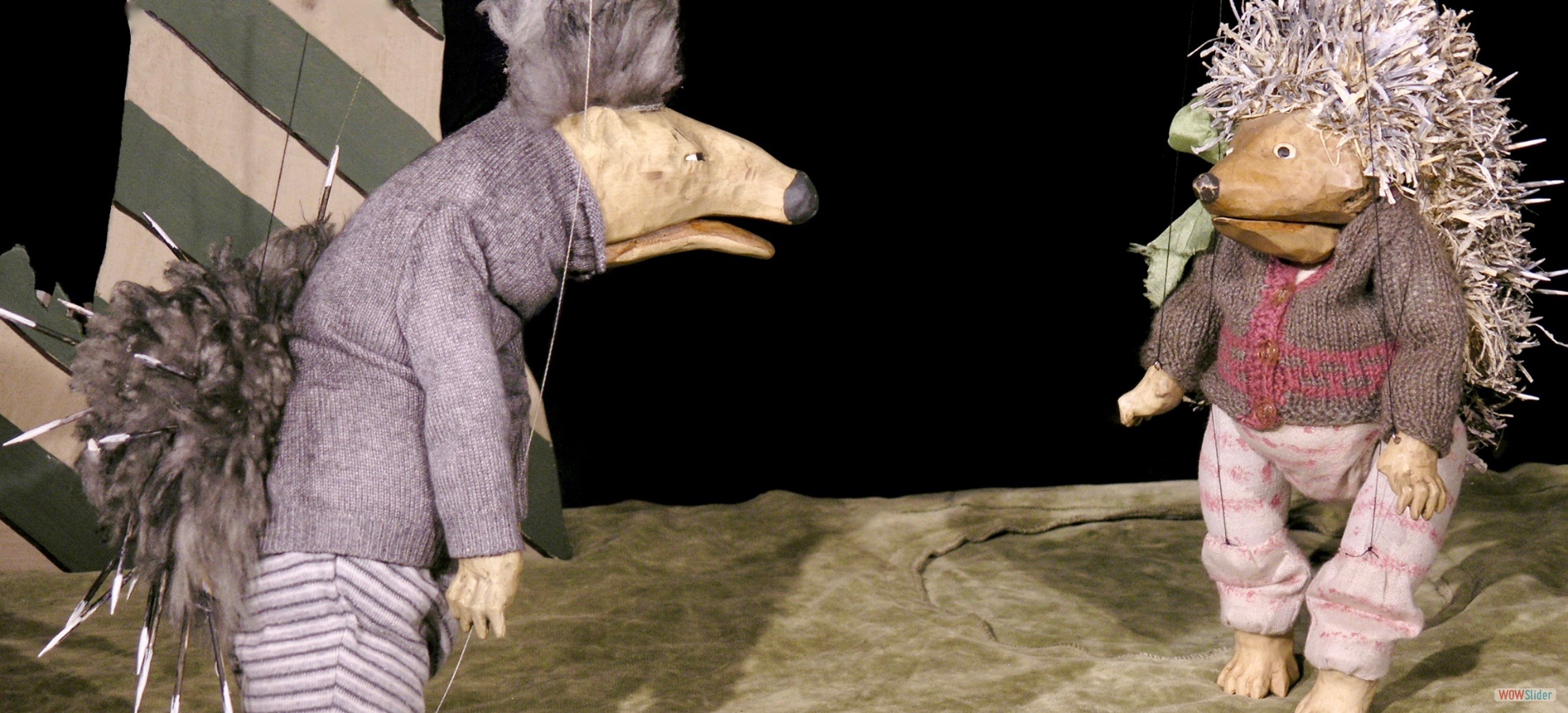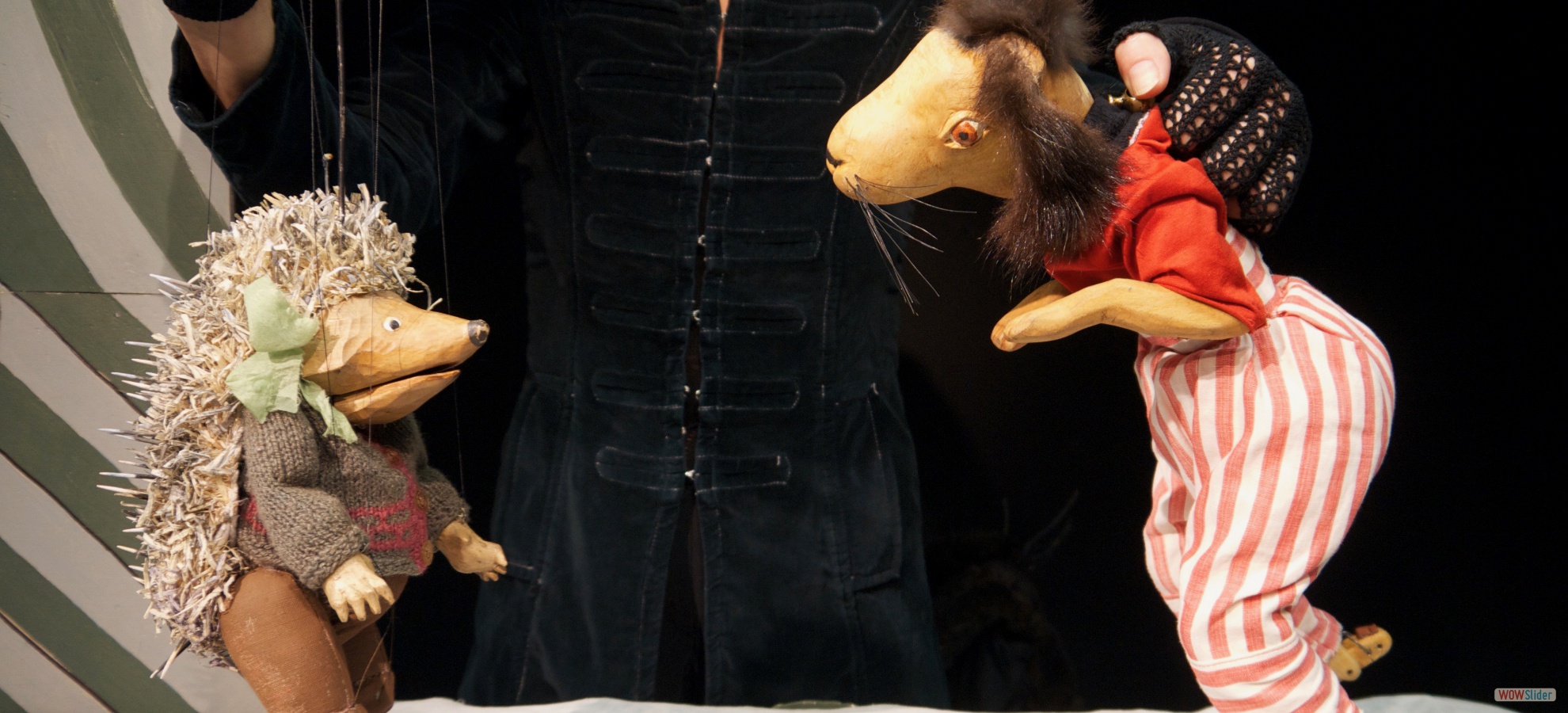.png?t=251e7677_5451_4045_b0fe_f97de17dac71)
The hedgehog who should no longer be one
Puppetry . For Children ages 5+ and families
School theatre project



Adapted from the story
by Isolde Stark
Photos: Peter Müller
SCHOOL THEATRE PROJECT FOR CHILDREN FROM 5-10 YEARS
I offer a "follow-up talk" for children's groups from 5 years of age for staging.
This can take the form of a discussion after the performance or in the form of a workshop or project day.
To the content of the play:
A hedgehog leaves his sheltered garden, goes into the woods in the hope of meeting other animals ... to find friends! He finds the animals, but they have a leader - the porcupine. The porcupine will gladly tolerate him, but: "I decide who is allowed to carry spines here," says the porcupine. If the hedgehog wants to be accepted into the community, then he should become like any other animal, says the porcupine. The hedgehog now tries to hop like the hare, to strut like the stag, to dig like the mole ... All his efforts to please others culminate in their ridicule and even physical violence. But in the end, he reflects on himself and his strength, instinctively curling up into a spiky ball at the very moment when the porcupine threat becomes a great danger. When the porcupine pays tribute to him with a bleeding snout and the other animals suddenly applaud, the hedgehog leaves. No, not back to his garden, but further into the world. He wants to find friends who will take him as he is: prickly, with short legs, a hedgehog!
The play is about peer pressure and pressure to adapt, cowardice, intolerance and opportunism. It is also about the search for recognition, about self-discovery and self-determination.
Since the protagonists of the story are animals, these major themes of every society are addressed in a way that is easy for children to understand. As soon as they are in a community, every child has to face confrontation with others, may experience marginalisation or exclude others themselves, will take on a leading role, be a follower or withdraw, will in any case have to be more or less conscious of the different characters and temperaments in the group and will have to position themselves accordingly. I think it is important and useful to initiate a dialogue on such topics with very young children in order to develop an understanding of democracy and tolerance.
Experience shows that younger children can be reached very well through theatre and especially puppet theatre. Discussions and exchanges about what has been experienced are very easy to achieve after a performance. They are also often eager to re-enact what they have seen, to put themselves in the role of the hero and also the anti-hero. So it is easy to talk about the reflection of the experience through conversations or own play on the conflict situation and specific problems in the respective group. I will force this through appropriate guidelines and game instructions. Of course the respective educators will be important companions and observers.
By the way, the production can also be performed in smaller, "non-theatre" rooms. If necessary, I can also play on location in schools and other institutions.
The children would be in their familiar surroundings, so they would have their daily experiences and lessons learned here very much alive and could perhaps communicate more freely.
.png?t=251e7677_5451_4045_b0fe_f97de17dac71)
A production by Peter Müller (Theater Handgemenge) and Annette WurbsIdea: Peter Müller
Player: Peter Müller
Idea: Annette Wurbs . Peter Müller
Set Design and puppetry: Christian Werdin
Music: John Carlson
Lighting . Sound: Peter Müller
.png?t=251e7677_5451_4045_b0fe_f97de17dac71)
Duration: approx. 45 min
Max. audiences 150
either rising rows of seats with or without stage platform (max. 0.50m platform height)
or in the case of ground-level spectator rows with or without a stage platform (0.30m to max. 0.50m platform height)
For details see technical rider
Languages : German/English
Technicrider, photos, material
.png?t=251e7677_5451_4045_b0fe_f97de17dac71)
Performances so far in:
Germany, Poland, Switzerland, Austria, Turkmenistan, Thailand
Copyright Peter Müller
All rights reserved
Website created by Peter Müller
Picture credits : See performances
Impressum - Privacy policy



